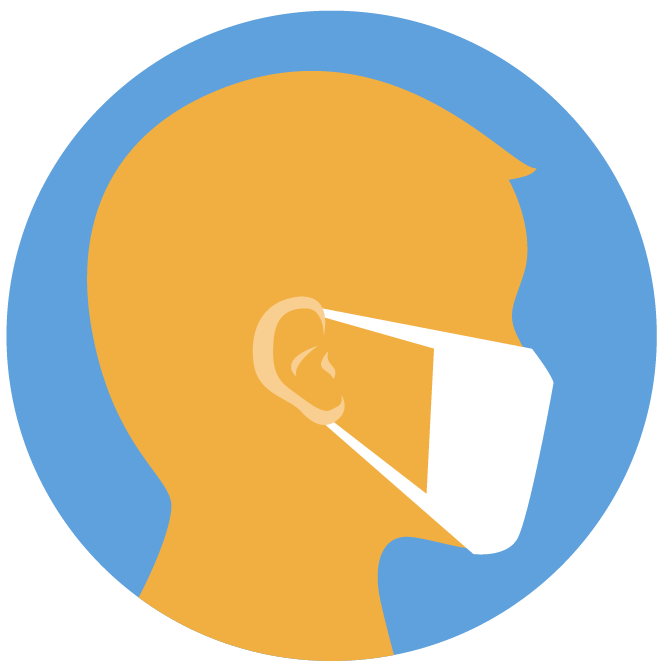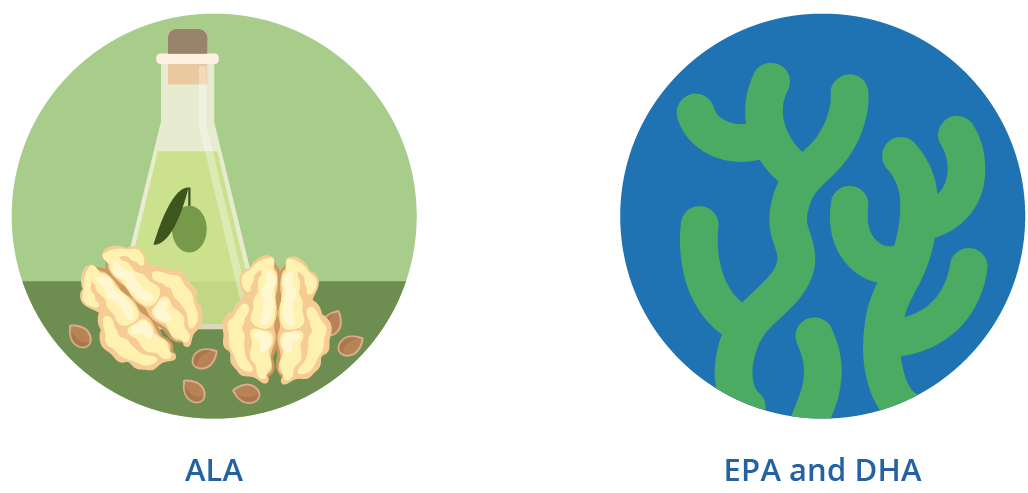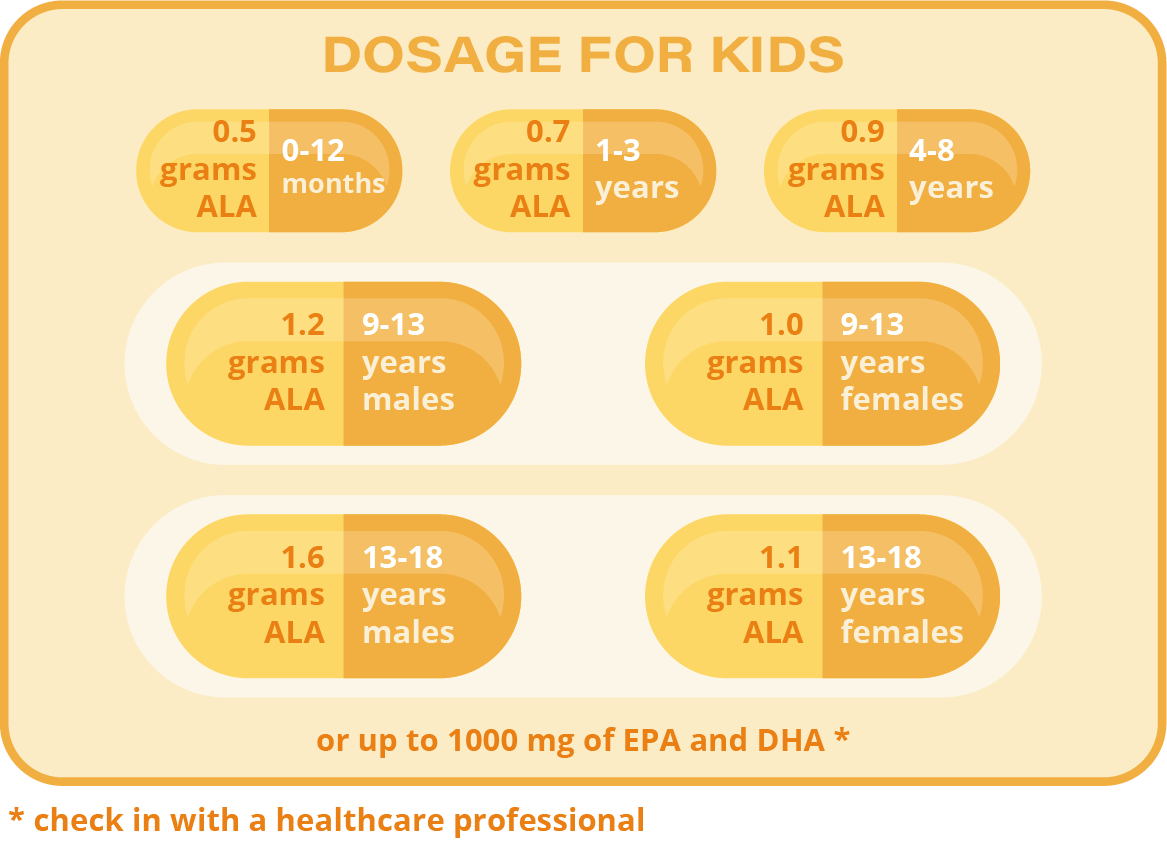Table of Contents
Ensuring your kids grow up healthy and strong is a top priority for any parent, and a key element in achieving this is through a well-balanced, nutritious diet. At the heart of this diet are Omega-3 fatty acids, vital nutrients that play a crucial role in a child's development right from the womb.*
For expecting mothers, monitoring Omega-3 intake is essential from the early stages of pregnancy. This guide provides essential insights into incorporating Omega-3s into your child's diet, highlighting why and how these fatty acids are indispensable for their growth and health.
Understanding Omega-3 Fatty Acids

Omega-3 fatty acids are more than just a health buzzword – they are essential nutrients vital for your child's well-being. These healthy fats, obtainable through diet and supplements, are part of the polyunsaturated fatty acids (PUFAs) group. Known as 'healthy fats,' PUFAs are instrumental in maintaining heart health, supporting the nervous system, and safeguarding the body against oxidative stress. Omega-3s serve as foundational components for cell membranes and hormones, playing a pivotal role in the body's overall development and functioning.*
It's important to ensure your child's diet includes these three primary types of Omega-3s:
- Docosahexaenoic acid (DHA)
- Eicosapentaenoic acid (EPA)
- Alpha-linolenic acid (ALA)
Key Benefits of Omega-3s for Children's Health
Omega-3 fatty acids are not just beneficial; they're essential at every life stage, especially during the critical periods of fetal development, infancy, and childhood. Let's explore the significant ways Omega-3s contribute to your child's health and development:
1. Brain Health and Development
Omega-3s, particularly Docosahexaenoic acid (DHA), are fundamental for brain and nervous system development. The brain is primarily composed of fat, and DHA forms a significant part of this. It facilitates brain cell communication, crucial for healthy brain development.*
Studies show that adequate DHA intake is linked to improved cognitive abilities and vocabulary in young children, while also positively influencing behavior. Even during pregnancy, Omega-3s play a vital role in prenatal development, making them a key ingredient in prenatal supplements.
2. Eye Development

DHA is also vital for eye health. The retina, which is crucial for vision, is enriched with DHA, indicating that Omega-3 intake from an early age can support optimal visual development.*
3. Anti-inflammatory Benefits

Omega-3s are renowned for their anti-inflammatory properties. Chronic inflammation can lead to various health issues, including asthma and allergies. Research suggests that sufficient Omega-3 intake can reduce asthmatic symptoms in children, showcasing its importance in managing inflammation.*
4. Improved Sleep Quality
Quality sleep is a cornerstone of healthy childhood development. Omega-3 fatty acids may aid in the production of melatonin, the hormone responsible for sleep regulation. Evidence suggests that children with higher levels of Omega-3s in their blood experience better sleep quality.*
Omega-3s are a powerhouse nutrient for children, supporting brain and eye development, fighting inflammation, and even promoting better sleep. Ensuring your child gets an adequate amount of Omega-3s can set a foundation for healthy growth and development.*
Sources of Omega-3s
Ensuring your child receives enough Omega-3 fatty acids for their health and development is easier than you might think, thanks to the variety of available sources. Here are some effective ways to incorporate Omega-3s into your child's diet:
- Fish: One of the best sources of Omega-3s is fatty, cold-water fish such as salmon, mackerel, and tuna. These fish are rich in both DHA and EPA, the types of Omega-3s vital for brain and heart health. Integrating these fish into your family meals several times a week can significantly boost Omega-3 intake. For guidance, the American Heart Association suggests consuming two fish servings weekly.
- Fish Oil Supplements: If including fish in meals isn’t feasible, consider fish oil supplements. These supplements offer the benefits of Omega-3s found in fatty fish, packaged conveniently in pills or capsules. They can be a practical alternative for ensuring your child gets enough Omega-3s.
- Cod Liver Oil: Another excellent option is cod liver oil. Along with Omega-3s, it provides significant amounts of Vitamins D and A, supporting a well-rounded diet.
- Plant-Based Sources: For families preferring plant-based options or for children who might not take well to fish or fish oil, there are several plant-based Omega-3 sources. These include flaxseeds, chia seeds, hemp seeds, and walnuts, which are high in Alpha-linolenic acid (ALA), another form of Omega-3. Incorporating these foods into your child’s diet can be an effective way to ensure they receive adequate Omega-3s.
Plant-Based Omega-3 Sources for Vegan and Vegetarian Diets

If your family follows a vegan or vegetarian diet, or if your children are not fond of fish, there are still ample ways to ensure they get the necessary Omega-3s. Plant-based sources primarily provide alpha-linolenic acid (ALA), a crucial type of Omega-3. Foods rich in ALA include walnuts, flax seeds, chia seeds, and olive oil. Additionally, vegan supplements like flaxseed oil can be incorporated into your family's diet to fulfill Omega-3 requirements.
However, it's important to note that the body's ability to convert ALA into DHA and EPA, the other forms of Omega-3, is limited. This conversion is crucial because the body can utilize DHA and EPA more directly and efficiently. Insufficient intake of DHA and EPA has been linked in some studies to developmental issues such as ADHD, autism, bipolar disorder, and depression.*
Therefore, for families adhering to vegan diets, algae oil emerges as an excellent alternative. Algae oil, derived from microalgae that produce EPA and DHA, offers a plant-based solution to meet the body's Omega-3 needs without compromising on nutrient bioavailability. This is particularly beneficial during pregnancy, as algae oil is free from the mercury risks associated with certain fish, ensuring a safer intake of Omega-3s for both mother and child.
In summary, while plant-based ALA sources are beneficial, incorporating direct sources of DHA and EPA, such as algae oil, can significantly enhance the Omega-3 profile of a vegan or vegetarian diet, ensuring optimal health and development for your children.
Potential Side Effects of Omega-3 Supplements
While Omega-3 supplements offer a convenient way to ensure your kids get enough of these essential fatty acids, it's important to be aware of potential side effects. Commonly reported side effects from Omega-3 supplements can include:
- Heartburn
- Diarrhea
- Nausea
- Headaches
Additionally, some people experience less desirable effects specific to fish oil pills, such as unpleasant aftertastes and 'fish burps,' which can lead to bad breath. This is particularly relevant for fish-based Omega-3 sources. However, if you're using a plant-based Omega-3 supplement, like algae oil pills, these specific issues are generally not a concern.
Before introducing Omega-3 supplements into your child's diet, it's crucial to consult with their pediatrician. A healthcare professional can provide personalized advice and ensure that supplements are appropriate for your child's health needs and dietary requirements. Remember, while supplements can be beneficial, they're not without their potential drawbacks, and professional guidance is key to navigating their use safely and effectively.
Guidelines for Omega-3 Dosage in Children

Understanding the right dosage of Omega-3s for children can be a bit complex, as there are no universally recommended combined Omega-3 dosages for children or adults. However, to ensure nutritional adequacy, there are established Adequate Intakes (AI) based on age:
- 0.5 grams for infants from birth through 12 months
- 0.7 grams of ALA for children aged 1-3 years
- 0.9 grams of ALA for children aged 4-8 years
- 1.2 grams of ALA for males and 1.0 grams for females aged 9-13 years
- 1.6 grams of ALA for males and 1.1 grams for females aged 14-18 years
For supplementation, many health experts suggest that doses up to 1000 mg of combined EPA and DHA are generally suitable for most children. However, it's crucial to consult your child's pediatrician to determine the appropriate amount based on individual health needs.
Pregnant and breastfeeding mothers also need to be mindful of their Omega-3 intake, as it directly impacts the child's development. Generally, expecting mothers are advised to consume 650 mg of combined Omega-3s daily, with at least 300 mg from DHA. Breastfeeding mothers should aim for about 250-375 mg of combined EPA and DHA daily.
These guidelines are designed to provide a framework, but personal circumstances and health considerations may necessitate adjustments.
Choosing the right Omega-3 for your kids

Ensuring your children get their essential Omega-3s for optimal health and development can be straightforward with the right guidance. Here's a practical approach to choosing the best Omega-3 source for your kids:
1. Dosage
While selecting supplements, focus on the dosage rather than whether it's specifically marketed for children. A combination of EPA and DHA is ideal. Most experts suggest up to 1000 mg of EPA and DHA as a suitable dose for most children, but always confirm with your pediatrician before choosing a supplement.
2. Capsule Size
Some Omega-3 supplements come in large capsules that might be challenging for kids to swallow. Opt for smaller capsules, or consider cutting capsules in half and mixing them into food. This can be particularly helpful for children who struggle with swallowing pills.
3. Source of Omega-3
The source of Omega-3 is crucial, especially if your child is averse to the taste of fish or has fish allergies. Algae oil supplements are an excellent alternative, providing the necessary DHA and EPA without the fishy taste. They are also a safer option for those with seafood allergies.
4. Environmental Consideration
Reflect on the environmental impact of your supplement choice. The commercial fishing industry can contribute to overfishing and environmental degradation. Opting for vegan options like algae oil can be a step towards preserving the planet for future generations. It's not just about meeting your child's nutritional needs but also about making sustainable choices that benefit the planet.


